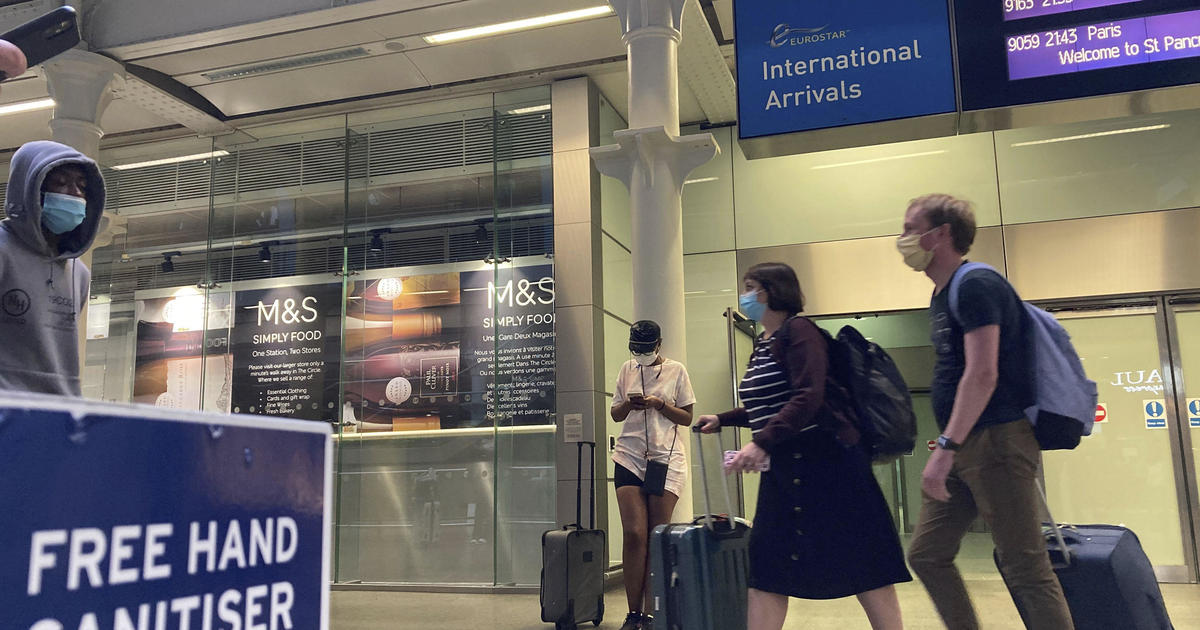Increases in coronavirus cases in some of Europe’s key holiday destinations have prompted some governments to impose sudden measures, forcing many travelers to upend their plans.
The U.K. government imposed a mandatory two-week coronavirus quarantine on anyone coming from France in a last-minute decision, Imtiaz Tyab reports. The isolation measure also applies to the Netherlands, Monaco, Malta, Turks and Caicos, and Aruba, BBC News reported.
Thousands of British vacationers made a quick dash to get home before the isolation requirement went into effect on Saturday.
“I would have stayed in France longer, but I don’t want to do the two weeks quarantine,” said a British resident at a gas pump in Calais.
Travelers emerge from the Eurostar St Pancras International railway station, returning from France on Friday to avoid the quarantine restrictions. Travelers had to return to the UK before a 4 a.m. Saturday deadline to avoid the new restrictions.
Kirsty O’Connor/AP
In Germany, which is reporting a three-month high of over 1,400 new infections in 24 hours, workers are testing drivers arriving at its borders. A woman returning from vacation in Italy said she wanted to get tested for the safety of fellow citizens and returning to work.
Spain, meanwhile, has reported nearly 4,000 new cases per day for seven straight days, and its government is responding by closing night clubs and banning smoking in public areas.
Spanish student Gabriel Vizcaino said he agreed closed spaces posed a health risk, but that nightlife in the streets should remain an option.
Croatia, meanwhile, is seeing daily COVID-19 cases rise, and some neighboring countries have tightened travel measures to the country. But its vital tourism sector is thriving.
The coronavirus surge and nations’ efforts to contain it are negatively impacting the economically vulnerable. Thousands of Albanians who live and work in Greece raced to the border after the Greek government announced tougher entry requirements to contain its surge in infections.
National health agencies say young people are being hit the hardest by infections. Forty percent of all cases in France, Germany, Spain, the Netherlands and Belgium are among 20 to 39-year-olds, prompting fears among experts that the virus could spread back to more vulnerable groups.
Globally, more than 21 million coronavirus cases have now been reported.
